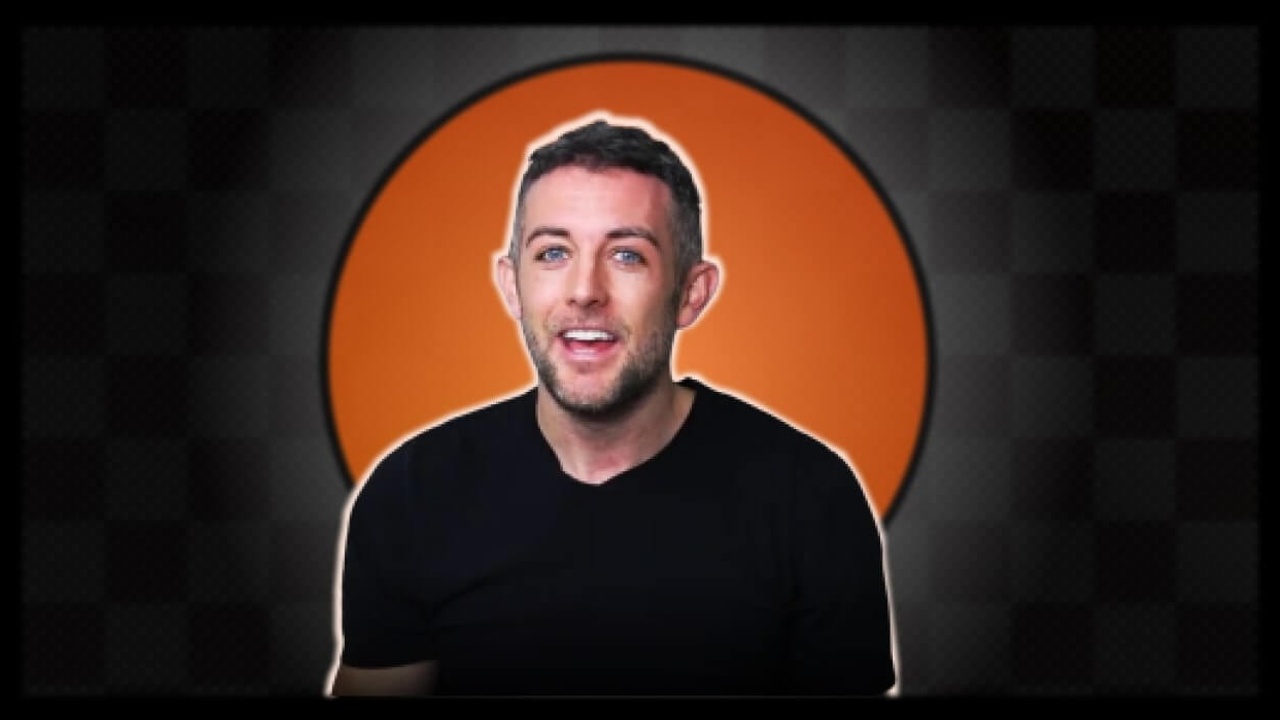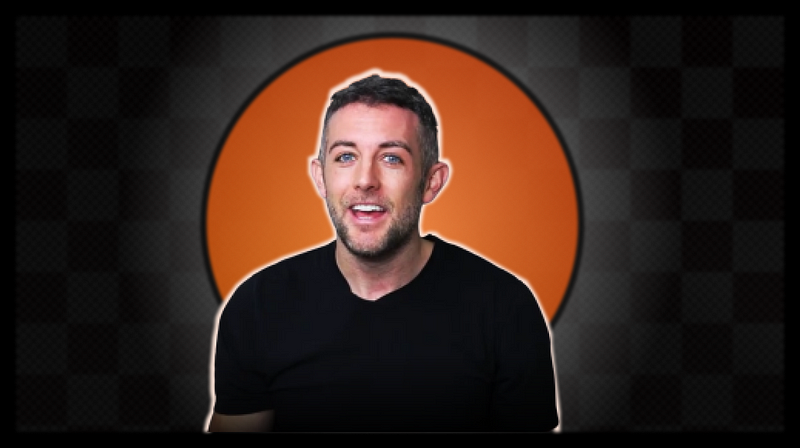What Joel Primus Wishes He Knew Before Founding A NASDAQ-Listed Company
Feb 16, 2021
What Joel Primus Wishes He Knew Before Founding A NASDAQ-Listed Company
Lessons from the founder of Naked and Kosan

My introductory call with Joel Primus went well over an hour over schedule as we drifted way off-topic. As his wife put her foot down that he had to greet their guests, where most people extend a business arm forward, Joel instead hoped he had made a friend. He had.
The Joel I met is the result of years of soul searching following his remarkable career. It all started while hiking in Peru when he discovered the local cloth for underwear was unbelievably comfortable but lacked durability. This triggered him to create the Naked brand, which was once advertised by NBA All-Star Dwyane Wade.
Despite being rejected twice by Dragon’s Den in Canada, his belief was resolute and in 2019 he achieved his dream and listed his company on the NASDAQ. The story doesn’t end there though. His next company Kosan became one of the fastest to reach $1m on Kickstarter and the rollercoaster began again.
Unfortunately, Kosan is a travel company so it was hit hard by the pandemic. Yet it’s given him time to reflect on his career and write his first book, Getting Naked*, where he breaks down what he wishes he knew at the start of his crazy journey in the startup world. With a group of friends, he’s now looking for companies to invest in and start his next phase.
He was full of great advice and I’ve picked out some of my favorites below.
Don’t be driven by insecurity
Many entrepreneurs say they want to change the world and it makes them sound like heroes. I wonder if Joel’s confession he was driven by “deep self-worth issues” is far closer to reality for most.
Joel was an elite runner who competed at the Youth Olympic Games for Canada. As you can imagine, this level of success makes you very popular so running became both his identity and his source of validation. Yet it was all ripped away from him by a cruel injury and he desperately needed something to fill the void.
Filling this hole was “100% the reason why” he became an entrepreneur. He didn’t want to be successful, he needed to be otherwise he would have gone into a dark place mentally. What’s interesting is while other entrepreneurs talk about how their business is part of who they are, they can neglect to mention how this feels when things aren’t going well.
It took him 5 years to realize he was going down this destructive path and he hopes you can build the self-awareness faster to not go through the same anguish he did.
You’re probably not Tesla
Like you and I, Joel read a lot of success stories to find inspiration. The people who grow the fastest make all the headlines but they aren’t representative of the average thriving business.
Joel burned himself out attempting crazy rates of growth because his comparison points were so unrealistic. He advises people in non-tech industries to stop comparing themselves to the tech world because it’s a different game. Naked was a clothing company and wouldn’t have realistically had a unicorn-like valuation.
He wishes he appreciated the smaller wins along the journey more rather than be so single-minded on IPO. He would have spent more time on building partnerships and teams as a long term investment.
While he “had a lot of fun, by and large, it wasn’t enjoyable”. He thinks this isn’t talked about enough. Isn’t it better to grow slower and be happier than grow fast and be miserable?
Don’t be like Voldemort
Minor spoilers ahead. Joel recently finished reading Harry Potter to his daughters and found Voldemort's curse relatable. In the story, he split his soul into 7 pieces leaving him in a constant state of strain and anguish. He was everywhere and nowhere at once.
Joel likens this to how entrepreneurs spread themselves too thinly. They try to be on every platform and answer everyone but just end up exhausted. He advises to pick one place to focus your efforts and make it the only place people can reach you; for him, it’s email. If an interesting message comes on another platform, he gets them to email him instead to maintain order.
Another useful trick is when you take leave, giving an autoresponse saying something like:
“All emails received this week will be archived. If you wish me to read this email, please resend when I am back in the office on Xth of Y”.
This is because Joel felt whenever he had time off, on the first day back reading all the emails just meant he was reliving the week he had missed. By archiving all the emails, there is no split in the soul. When you are away, you are truly away not just postponing.
Not all business ideas are great
Joel’s travel company Kosan was doing great until the pandemic hit. He could have been stubborn and kept everything running despite there clearly being no customers. Yet his experiences have made him more self-aware, he knows his identity is no longer his business and could shut it all down for a year.
I see so many business owners complaining on the TV about the latest measures to control the virus. So what if people are dying, I have a business to run! It’s shocking but it makes sense because people’s identities are so wrapped up in their business. The best iterate and pivot depending on the environment rather than demand the world changes for them.
Joel sees others who pick an idea that has failed many times before but the founder believes they are better than everyone else. They think if they just work harder than everyone else then they’ll be successful but usually, they are wrong. He knows no matter how hard he worked at Kosan, it would never have made money in a pandemic.
“Don’t get blinded by passion” — Joel Primus
Work hard in cycles
As an elite runner, Joel trained harder than most people could imagine but people don’t realize how controlled it was. There are times when he would be running 200km a week regularly but even then most of his day would be spent resting. At other times of the year, he’d barely run at all to allow his body to recover. This cycle of intensity is how you succeed at the top level of any sport.
In business, people believe they can never switch off and ignore the need for rest. Joel points to how much Obama aged in his first 4 years of presidency. You could justify Obama needing to work so hard because he’s running a country but how much of your health are you willing to sacrifice for your business? That’s what you are trading by burning yourself out and you shouldn’t delude yourself otherwise.
Joel remembers consulting for a company when his wife’s father had just died. They gave him 3 days of mourning then became frustrated at him for not answering emails. Are these the types of clients you want? Is that living the entrepreneurial dream? He didn’t think so.
He admits to having little balance at the moment but he is acutely aware and is planning time away. He’s moved to a farm to get out of the city and “ground himself in nature”. He now plans weeks where he does nothing and allows himself to “just be”. On his first attempt, he went four days before caving in. His honesty is a great reminder that it doesn’t have to be perfect as long as there is a real attempt to switch off.
10 deep connections matter more than 1000 acquaintances
One of Joel’s other passions is filmmaking and just like a startup, he needed to raise money to begin. He thinks he must have messaged over 1000 people and not a single one replied.
He then messaged 10 friends who knew people in the tourism industry in those countries and the responses came flying back. These people didn’t trust the guy who spams them on social media but they trusted someone they had met before.
Joel’s lesson was to make quality connections with fewer people because it’s both more rewarding personally and you also get access to their networks too.
What to take with you
Joel isn’t afraid to show the naked truth of entrepreneurship and not just success porn. It was fascinating to see such a human side to a man who has achieved so much in the startup world.
His book goes into much greater depth about his strategies* for growing business healthily. Here’s the roundup of the key points I took:
- Don’t be driven by insecurity
- You’re probably not Tesla
- Don’t be like Voldemort
- Not all business ideas are great
- Work hard in cycles
- 10 deep connections matter more than 1000 acquaintances
*Affiliate link

